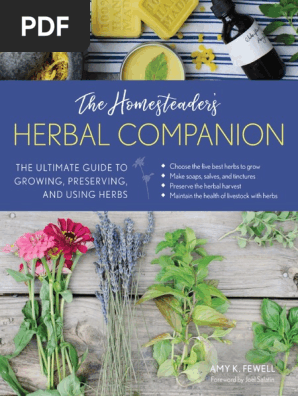
Infuse Your Home: Natural Cleaning Recipes with Garden Herbs
Imagine stepping into your home and being greeted not by the harsh, chemical scent of commercial cleaners, but by the gentle, invigorating aroma of lavender and thyme. A clean, fresh space, but one that whispers of a blooming garden and a simpler way of life. This isn't just a dream; it's the reality of cleaning with herbal infusions.
For generations, our ancestors relied on the power of plants to keep their homes clean and healthy. In a world increasingly concerned with toxins and environmental impact, rediscovering these traditional methods is more relevant than ever. Herbal infusions offer a natural, effective, and aromatic alternative to conventional cleaning products, allowing you to create a healthier and more sustainable home while connecting with the natural world around you.
This blog post will guide you through the world of herbal infusions for cleaning, exploring their benefits, how to create them, and versatile recipes for a sparkling clean home. We'll delve into the specifics of which herbs offer which benefits, how to sustainably source them, and address any safety concerns you might have. Get ready to harness the power of your garden and infuse your home with nature's goodness!

Herbal cleaning supplies basking in sunlight on a windowsill. This image sets the stage for natural and gentle cleaning solutions, highlighting the essence of a clean and organic approach.
Understanding Herbal Infusions for Cleaning
So, what exactly is an herbal infusion? Simply put, it's a water-based extract of herbs, created by steeping them in hot water, similar to making tea. This process extracts the beneficial properties of the herbs, including their volatile oils and other compounds, into the water, creating a potent cleaning solution.
It's important to distinguish between infusions, decoctions, and tinctures. While all three involve extracting plant compounds, infusions are the easiest and safest to create at home for cleaning purposes. A decoction involves simmering herbs in water for a longer period, often used for tougher plant materials like roots or bark. A tincture is an extract made with alcohol, which, while effective, isn't ideal for general household cleaning due to the alcohol content.
The real magic lies in choosing the right herbs for your cleaning needs. Each herb possesses unique properties that can contribute to a cleaner and healthier home:
- Lavender: Known for its antiseptic and relaxing properties, lavender is a wonderful addition to all-purpose cleaners and linen sprays. Its calming scent creates a soothing atmosphere.
- Thyme: Boasting strong antibacterial properties, thyme is perfect for disinfecting kitchen countertops and bathrooms.
- Rosemary: A powerful disinfectant and deodorizer, rosemary can help eliminate odors and kill germs, making it ideal for all-purpose cleaners.
- Lemon Balm: Offers disinfecting and deodorizing benefits while leaving a pleasant, light fragrance.
- Mint: With its refreshing and invigorating scent, mint is a great addition to glass cleaners and floor washes.
Creating an infusion is a simple process. Generally, a good starting ratio is 1/4 cup of dried herbs (or 1/2 cup of fresh herbs) to 2 cups of boiling water. Steep the herbs for at least 20-30 minutes, or even longer for a stronger infusion. Once steeped, strain the herbs using a fine-mesh strainer or cheesecloth and store the infusion in a clean glass jar.

This is a close-up shot of an herbal infusion steeping in a glass jar, symbolizing the simple and effective method of extracting beneficial properties from herbs for natural cleaning. The clarity of the water and herbs in suspension shows the purity and ease of preparation.
Key Takeaway: Herbal infusions are a simple, safe, and effective way to clean your home naturally, offering unique benefits depending on the herbs you choose.
Essential Tools & Herbal Sourcing for Infusion Cleaning
Before you start infusing, you'll need a few essential tools. The good news is, most of them are likely already in your kitchen:
- Glass Jars: For steeping and storing your infusions.
- Spray Bottles (Preferably Glass): For dispensing your cleaning solutions. Glass is preferable to plastic as it won't leach chemicals into your infusions and is more sustainable.
- Strainers: A fine-mesh strainer or cheesecloth for removing the herbs from the infusion.
- Labels: To clearly label your bottles with the contents and date. This is crucial for safety and organization.
Sourcing your herbs sustainably is just as important as the cleaning process itself. Consider these options:
- Growing Your Own: The most sustainable option is to grow your own herbs. Even a small herb garden on a balcony or windowsill can provide you with a steady supply of cleaning ingredients.
- Foraging Responsibly: If you live in an area where herbs grow wild, you can forage for them. However, it's crucial to positively identify the herbs before harvesting them, and to only take what you need, leaving plenty for the ecosystem. Join a local foraging group or consult a field guide to ensure you're harvesting safely and sustainably.
- Buying from Reputable Local Sources: Support local farmers and businesses by purchasing organic herbs from farmers' markets or health food stores.
Using organic herbs is highly recommended. Conventional herbs may be treated with pesticides and herbicides, which you don't want to introduce into your home.
When harvesting your own herbs, do so in the morning after the dew has dried. Cut the stems just above a leaf node to encourage new growth. Dry the herbs by hanging them upside down in a cool, dark, and well-ventilated place. This helps preserve their essential oils.

Homegrown herbs drying rack sunlight. This image visualizes the importance of naturally and sustainably sourcing herbs to promote gentle, organic cleaning solutions that are perfect for the home.
Key Takeaway: Proper tools and sustainable sourcing are vital for responsible and effective herbal cleaning.
Versatile Herbal Infusion Cleaning Recipes
Now for the fun part: creating your own herbal cleaning recipes! Remember to always label your bottles clearly and test solutions on an inconspicuous area first. Adjust the recipes to suit your preferences and the specific needs of your home.
- All-Purpose Herbal Cleaner:
- Recipe: Combine 1/4 cup dried lavender, 1/4 cup dried thyme, and 1/4 cup dried rosemary. Infuse in 2 cups of boiling water for 30 minutes. Strain and pour into a spray bottle.
- Applications: Countertops, sinks, floors (test on an inconspicuous area first).
- Herbal Glass Cleaner:
- Recipe: Infuse 1/4 cup dried sage and 1/4 cup dried mint in 2 cups of boiling water for 20 minutes. Strain and mix with 1/4 cup white vinegar. Pour into a spray bottle. Use sparingly, as vinegar has a strong odor.
- Applications: Windows, mirrors.
- Herbal Linen Spray:
- Recipe: Infuse 1/2 cup dried lavender and 1/2 cup dried chamomile in 2 cups of boiling water for 30 minutes. Strain and pour into a spray bottle.
- Applications: Linens, pillows (as a refreshing spray).
- Herbal Dusting Spray:
- Recipe: Combine 1/4 cup dried rosemary and 1/4 cup dried cedar in 2 cups of boiling water. Infuse for 30 minutes, strain, and pour into a spray bottle.
- Applications: Furniture, wood trim.

All-purpose cleaner in spray bottle wood counter. This image demonstrates the versatility of cleaning solutions and the refreshing benefits of a natural home.
Key Takeaway: These recipes offer versatile, all-natural cleaning options for various household surfaces.
Safety & Troubleshooting
While herbal infusions are generally safe, it's important to be aware of potential safety concerns and know how to troubleshoot common issues.
- Allergies: Be mindful of potential allergies to certain herbs. If you or someone in your household has known allergies, avoid using those herbs in your cleaning solutions.
- Storage: Store infusions in a cool, dark place to prevent spoilage. They generally have a shelf life of 1-2 weeks at room temperature, or longer in the refrigerator (up to a month).
- Cloudy Solutions: A cloudy solution is usually harmless and doesn't affect the effectiveness of the infusion. It's simply due to natural compounds in the herbs.
- Strong Smells: If the scent of an infusion is too strong, dilute it further with water or adjust the herb ratios in future batches.
- Lingering Residue: If you find that an infusion leaves a lingering residue on surfaces, dilute the solution further.
- Disposal: Used herbs can be safely composted, returning them to the earth to nourish your garden.
Finally, consider the use of essential oils. While infusions are a great starting point, sometimes a stronger scent or effect is desired. Use essential oils as a complement to your infusions, or as an alternative when a stronger concentration is needed. However, use essential oils responsibly and dilute them properly before use.

Composting setup herbs leaves soil. This photo highlights the process of safe disposal and recycling, emphasizing environmentally-friendly practices that contribute to a sustainable approach to organic home care.
Key Takeaway: Safe handling, storage, and troubleshooting are essential for effective and worry-free herbal cleaning.
Embracing the Herbal Homestead
Cleaning with herbal infusions is more than just a way to keep your home clean; it's a return to traditional practices, a way to connect with nature, and a step towards a more sustainable and mindful way of life. By embracing the power of plants, you can create a healthier, happier home for yourself and your family, all while reducing your impact on the planet. So go ahead, explore the world of herbal cleaning and discover the magic of infusing your home with nature's goodness.

Person smiling using herbal cleaning wood table. This image promotes the positive impact of using simple, organic solutions by highlighting the joy and fulfillment of a natural home.
Now, we want to hear from you! What are your favorite herbal cleaning recipes or tips? Share them in the comments below! Don't forget to subscribe to the Better Homes and Harvests newsletter for more homesteading tips and tricks. And if you found this post helpful, share it on social media! We can't wait to hear about your experiences with herbal cleaning! What are your favorite herbs to use and what tips do you have for beginners just starting out?